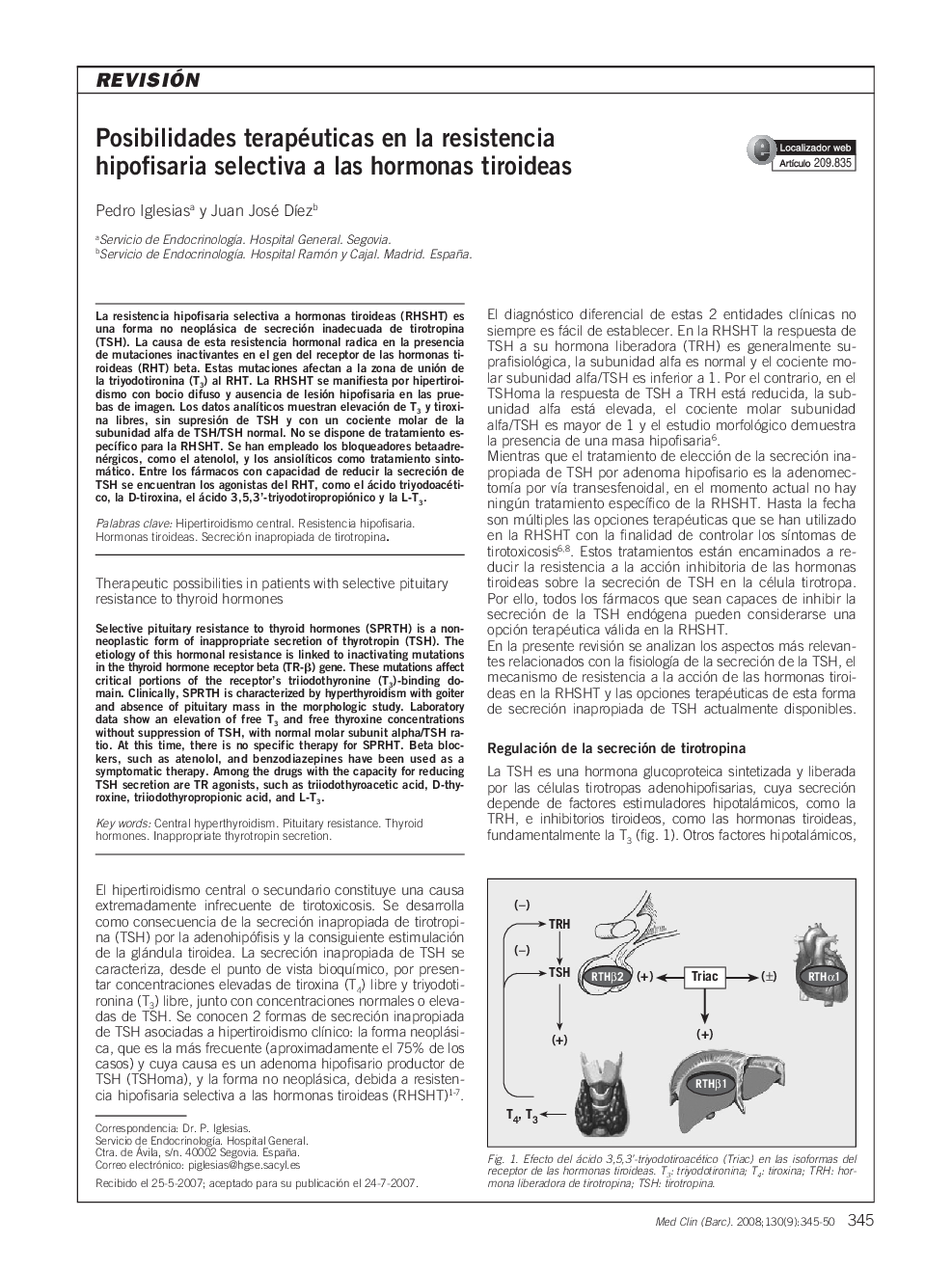| Article ID | Journal | Published Year | Pages | File Type |
|---|---|---|---|---|
| 3799775 | Medicina Clínica | 2008 | 6 Pages |
Abstract
Selective pituitary resistance to thyroid hormones (SPRTH) is a non-neoplastic form of inappropriate secretion of thyrotropin (TSH). The etiology of this hormonal resistance is linked to inactivating mutations in the thyroid hormone receptor beta (TR-β) gene. These mutations affect critical portions of the receptor's triiodothyronine (T3)-binding domain. Clinically, SPRTH is characterized by hyperthyroidism with goiter and absence of pituitary mass in the morphologic study. Laboratory data show an elevation of free T3 and free thyroxine concentrations without suppression of TSH, with normal molar subunit alpha/TSH ratio. At this time, there is no specific therapy for SPRHT. Beta blockers, such as atenolol, and benzodiazepines have been used as a symptomatic therapy. Among the drugs with the capacity for reducing TSH secretion are TR agonists, such as triiodothyroacetic acid, D-thyroxine, triiodothyropropionic acid, and L-T3.
Keywords
Related Topics
Health Sciences
Medicine and Dentistry
Medicine and Dentistry (General)
Authors
Pedro Iglesias, Juan José DÃez,
